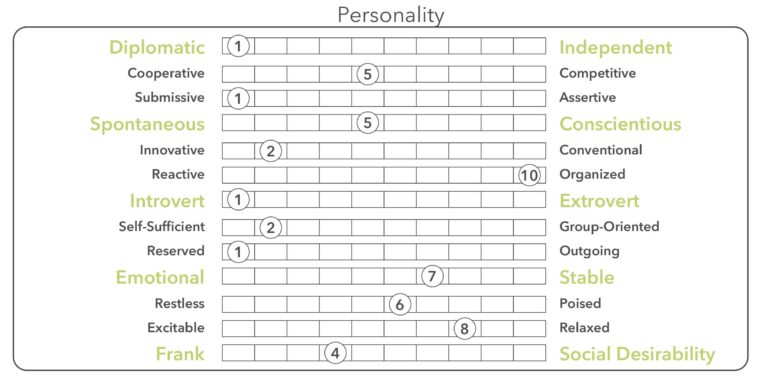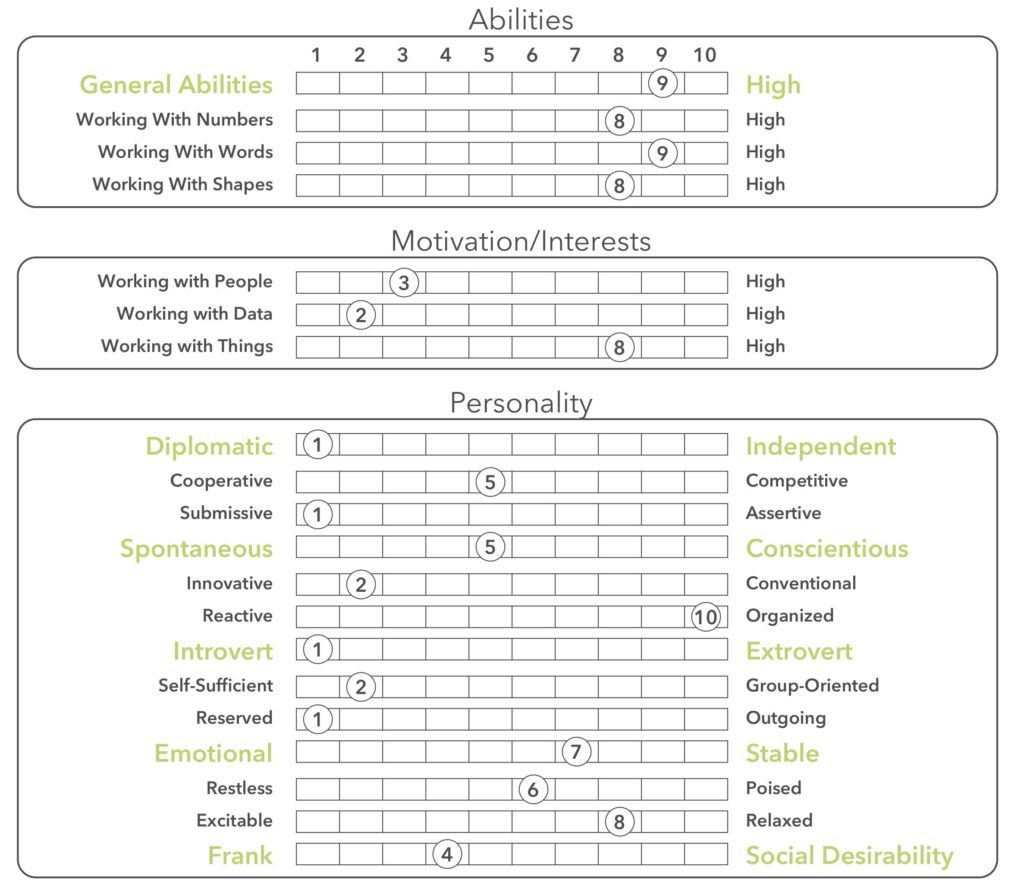Selection/Hiring: Prevue Psychometrics
Abilities, Interests, Personality
The Prevue Assessment (also known as the ICES Plus Assessment) is a personality testing battery designed to assess 20 “scales” describing an individual’s characteristics: four mental abilities scales, three interest scales, twelve personality scales and a social desirability scale.
The mental abilities scales are not an IQ test. They provide information about an individual’s ability to learn new information which can be an important aspect in jobs that have to address changing circumstances and new information.



The four mental ability scales measured by the Prevue Assessment are:
General Abilities:
Measures a person’s capacity to deal with ideas, to solve problems and to assimilate new information. It is an indication of how well a person thinks ahead to anticipate the effects of actions and decisions and how quickly he or she learns.
Working with Numbers:
An evaluation of numerical reasoning ability. It shows how well an individual reasons with new information, data and numbers. It indicates the ability to reason logically and solve problems.
Working with Words:
Relates to reasoning with and using written language effectively. It is an indication of written communication skills.
Working with Shapes:
Has to do with spatial skills, or how well a person is able to manipulate objects, both physically and visually. It is an indication of a person’s ability to think and reason in three dimensions.
Generally, people work more effectively in jobs that are aligned with their interests.
Interests:
Working with People:
Measures the extent to which an individual needs or wants involvement with people. It also indicates whether a person wants to mentor, negotiate, instruct, supervise, delegate, persuade, interact, serve and help.
Working with Data:
Measures how a person feels about working with statistics, symbols, facts and figures. It is different from Working with Numbers because it measures interests, not abilities. Working with Data indicates an interest in synthesizing, co-ordination, analyzing, compiling, computing, copying and comparing.
Working with Things:
Measures an individual’s interest in working with inanimate objects such as machinery, tools and equipment. An interest in Working with Things includes setting up, precision working, operating-controlling, driving-operating, manipulating, tending, feeding-unloading and handling.
Personality Scales:
The Prevue Assessment uses personality testing to measure four major personality scales, each of which is supported by two minor scales.
The four major scales are:
- Independence
- Conscientiousness
- Extroversion
- Stability
They are generally referred to as ICES. Each of these major and minor scales measures a personality trait in terms of two extremes. Thus, by way of example the opposite of Extrovert is Introvert and the opposite of Competitive is Co-operative.
Sten Graph Reliability Scale:
The last dimension related in the graph report is the social desirability scale. This scale is not a personality testing measure per se; rather it is a reliability scale that serves as an indicator of possible behavior. The scale provides insight into how a candidate has completed the Prevue Assessment. Candidates with a (1,2) or (9,10) score may have endeavored to manipulate the results of their Prevue Assessment. The extremes of the scale provide the following information:
Social Desirability – Low:
When people are overly frank, they have either presented an overly negative picture of themselves or they are lacking in a number of socially acceptable attributes.
Social Desirability – High:
When people try to present themselves as overly socially acceptable, they exaggerate their finer qualities. However, there is the possibility that a high social desirability rating can indicate a truly “good person”.
The following is the full graph page

